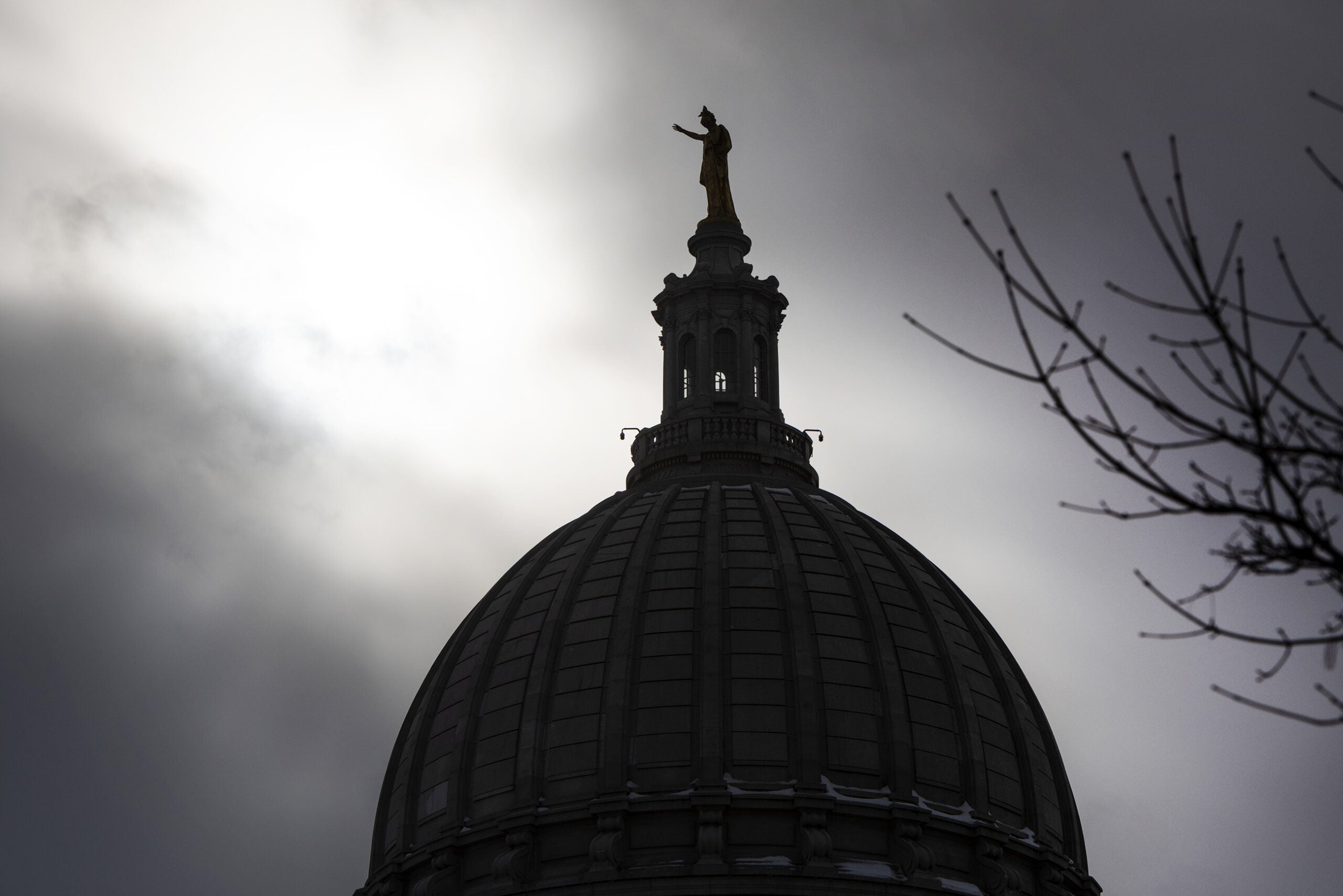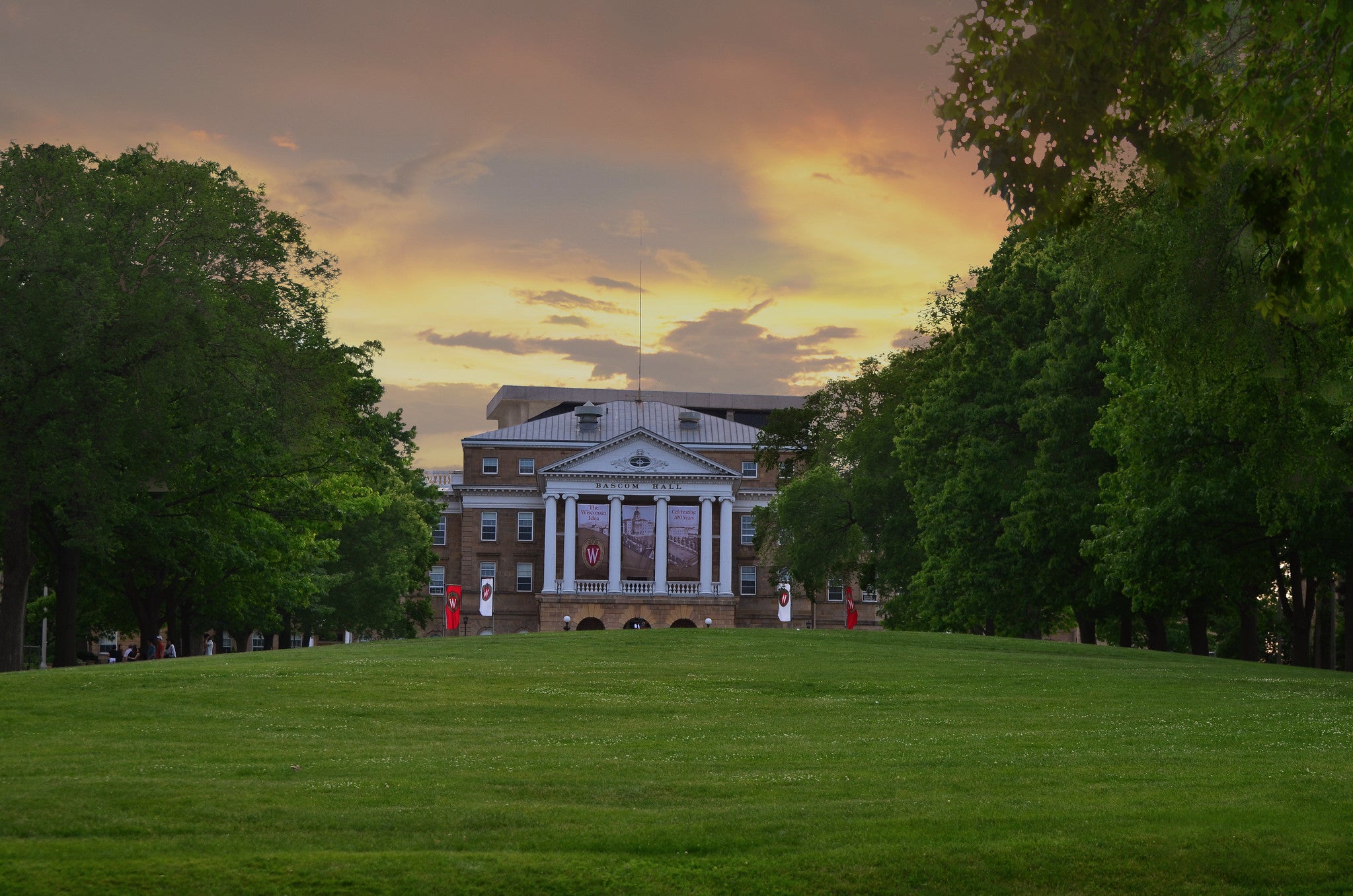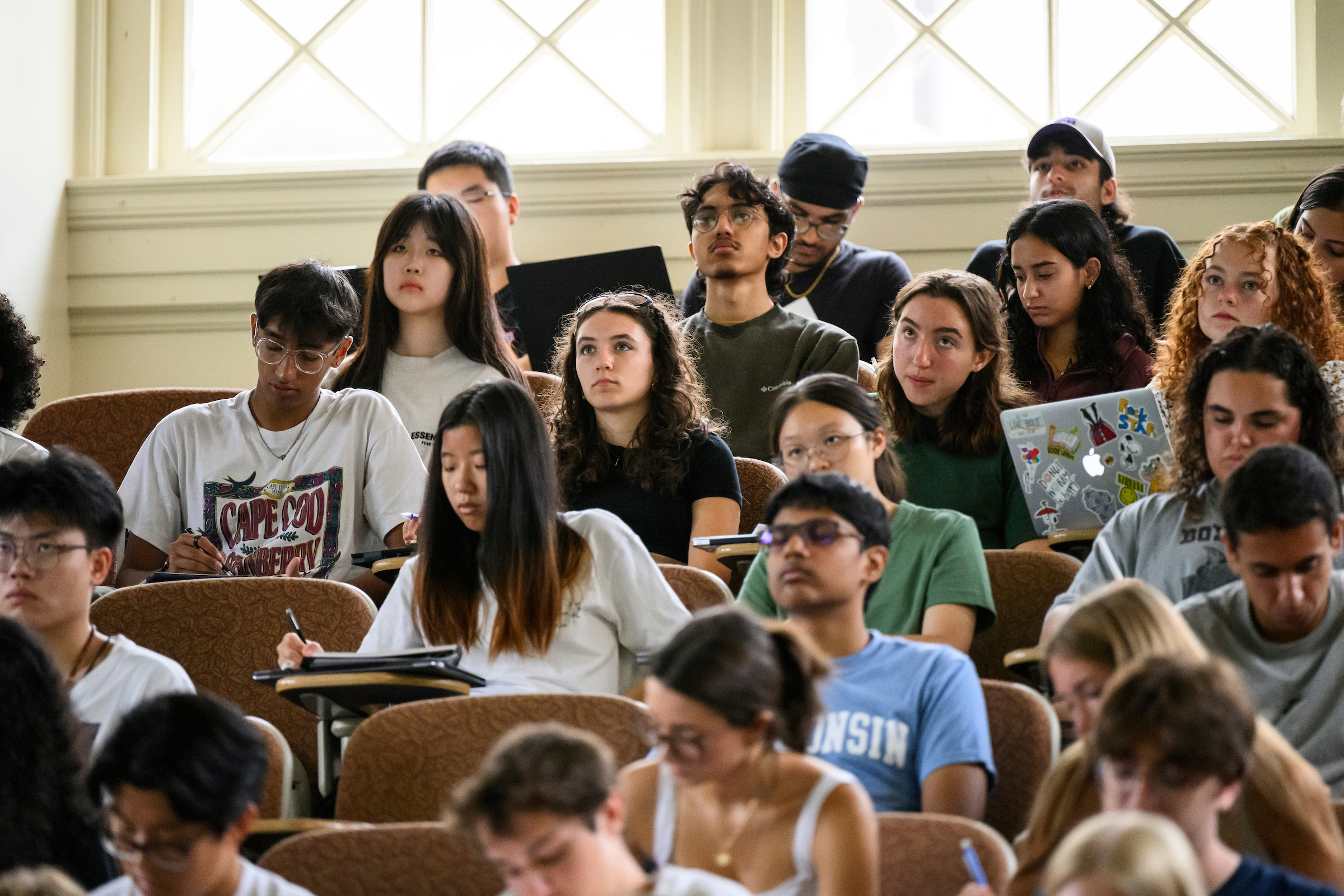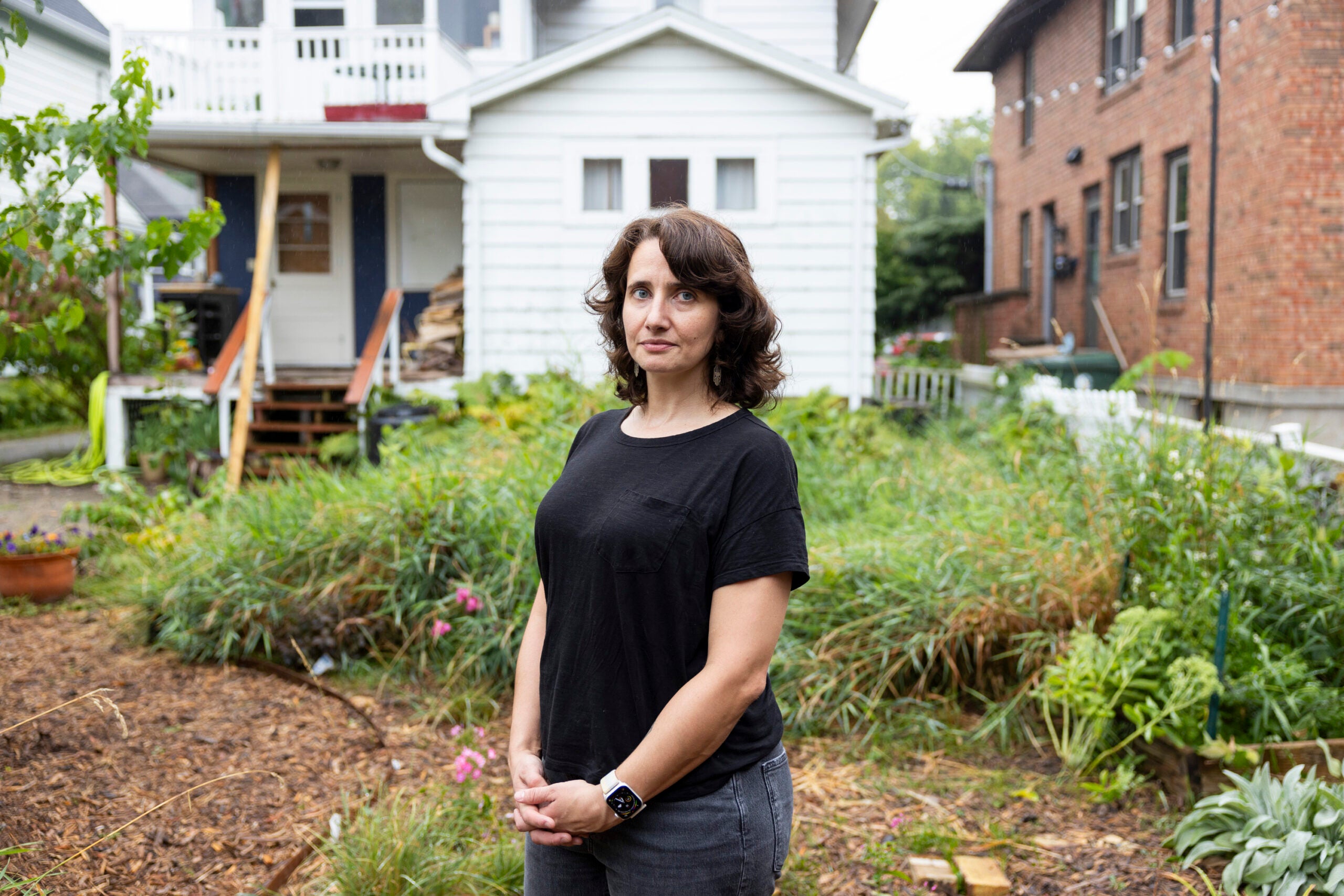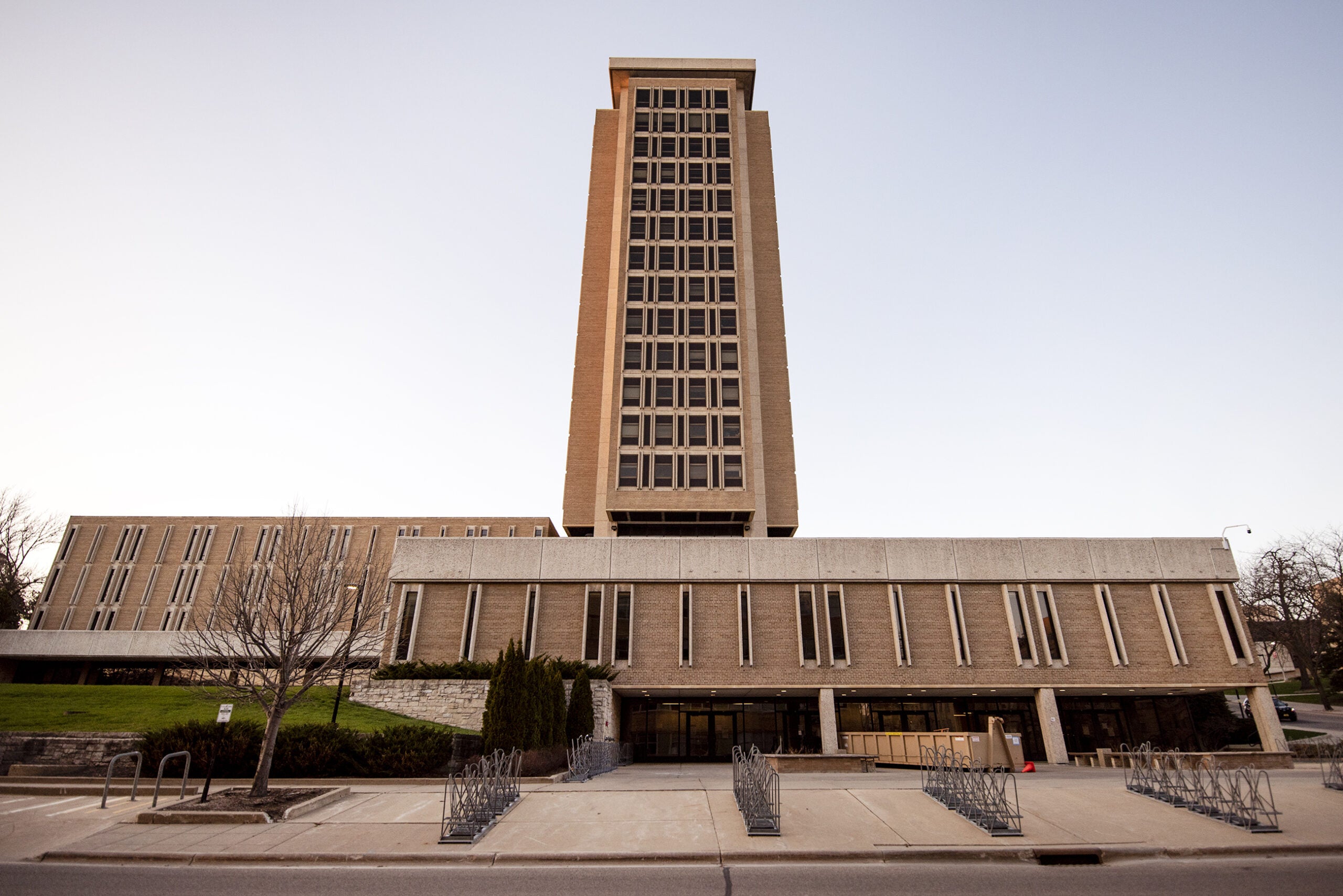Republican state lawmakers questioning whether a lack of political diversity on college campuses is hurting education discussed possible fixes — like considering political affiliation when hiring professors — during a legislative hearing Thursday. The meeting follows a University of Wisconsin System student free speech survey that found a majority of conservative respondents reported self-censoring views in class.
Members of the State Assembly Colleges and Universities Committee heard testimony from three conservative students from UW-Madison, a retired political scientist from UW-La Crosse and director of the national Bipartisan Policy Center.
The hearing was organized by committee chair Rep. Dave Murphy, R-Greenville, who has previously accused UW-Madison of “indoctrinating students.” Murphy opened the discussion by noting that “questioning the quality of education” is appropriate for the committee because the UW System is a top recipient of state funding and one of the biggest employers in Wisconsin.
News with a little more humanity
WPR’s “Wisconsin Today” newsletter keeps you connected to the state you love without feeling overwhelmed. No paywall. No agenda. No corporate filter.
Murphy said surveys of college students around the U.S. and incidences of conservative speakers being shouted down at universities highlight “a national trend towards suppression of free speech.”
“Our own UW System has surveyed its students, and it shows a cause for concern here at home,” Murphy said.
That survey, released Feb. 1, found that a majority of respondents felt instructors encourage students to explore a wide range of viewpoints in class, but around 30 percent reported feeling uncomfortable sharing thoughts in class, especially on hot-button topics like abortion or transgender issues.
The survey also found a majority of students identifying as liberal were more likely to support disinviting speakers deemed offensive from campus while a majority of those identifying as conservative reported feeling pressure to agree with political or ideological views in class.
Jacquelin Pfeffer Merill, director of the Bipartisan Policy Center’s Campus Free Expression Project, told the committee there is an ongoing crisis in the U.S. where free expression is threatened. In particular, Pfeffer Merill placed some of the blame on a “censorius minority” on college campuses amplified by social media.
“It may be that there are very few students who would use social media to post classroom students’ remarks,” Pfeffer Merill said. “But the damage that those few can do makes it just too chancy to express a view that’s outside the campus mainstream.”
Pfeffer Merill said the answer is to create robust protections for expression of controversial and unorthodox views.
Three conservative students from UW-Madison told the committee they’ve been impacted by what they feel is liberal bias from instructors, administrators and student leaders of the campus newspaper.
Ali Beneker, who leads a chapter of the conservative Young America’s Foundation, invited nationally known conservative Matt Walsh to speak on campus in October as part of his “What is a Woman” tour, which is highly critical of policies supporting transgender individuals.
Ahead of the event, Beneker said the campus’ dean of students shared a statement on social media saying Walsh’s views “are harmful to the trans community.”
“These statements might seem right at the moment, but I’d argue that they’re not,” Beneker said. “The short-term effect of these statements is saving face with a few outraged students. But the long-term effect is that you’re curating a campus culture that is completely closed off to hearing differing views. I’d say that’s really concerning.”
The night before Walsh’s speech, UW-Madison’s student union was vandalized with spray-painted messages criticizing Walsh and the Young America’s Foundation.
GOP lawmakers at Thursday’s hearing had questions for guests about how to address liberal bias and suppression of controversial ideas. One suggestion considered the political affiliations of applicants during faculty hiring committees.
Rep. Robert Witke, R-Racine, asked whether college administrators should go through diversity training including lessons on a wide range of political ideologies.
Rep. Jerry O’Connor, R-Fond Du Lac, talked about results from the student free speech survey and suggested taking the same approach with employees.
“I would find another survey to be important would be to survey administrators, the college professors and the influencers on campus, because I think we could say confidently here in Wisconsin we have a predominantly liberal establishment in the system,” O’Connor said. “How do you change the culture if the culture is leaning so far to one side?”
Democratic members on the committee took a different approach and questioned who would be benefited by including political ideology in campus diversity training.
State Rep. Jodi Emerson, D-Eau Claire, asked whether it would be appropriate to block speakers espousing provably false views from campus. She gave a theoretical example of a speaker on campus claiming that “the earth is the center of the universe.”
“So, how do we deal with situations where a speaker comes in backing a topic, basing their lecture around something that is just factually inaccurate?” Emerson said.
Prior to Thursday’s hearing, Emerson and State Rep. Jimmy Anderson, D-Fitchburg, questioned the intent of GOP lawmakers behind the inquiry. They claimed the guests were “cherry-picked” and Democrats were not asked to weigh in on who should be invited.
Another hearing on will be held April 20 in Eau Claire.
Wisconsin Public Radio, © Copyright 2025, Board of Regents of the University of Wisconsin System and Wisconsin Educational Communications Board.

